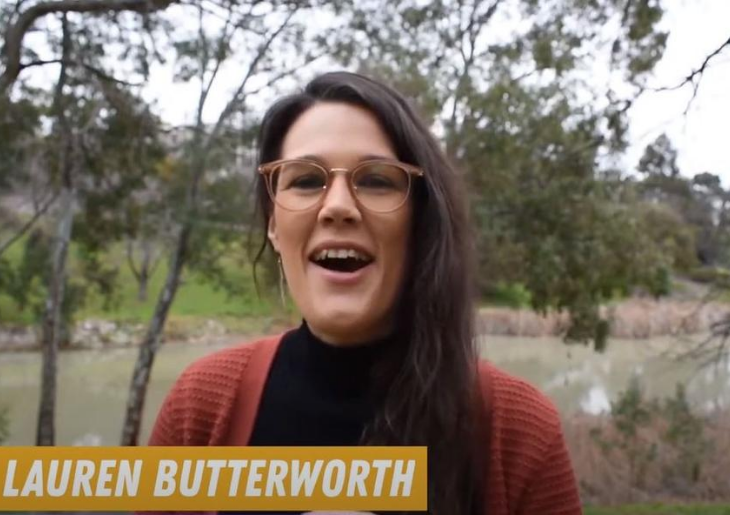
Hey everyone!
Lauren here – you know me 😊
So, I’m a naturally anxious person, right? I’m also a bit of a perfectionist. I know, it’s a fun mix. But I’m also a creative person; I love making things – writing words, recording podcasts, editing content. The thing is, since the beginning of this year, my creative output has been … less than ideal. In fact, I’ve really struggled to write anything at all and the content that I am creating is not my best (except for this series, obviously!)
I’ve been dealing with a lot of guilt and anxiety about not feeling productive enough, and I don’t think I’m alone here. Karen, the fearless moderator of Overheard at Flinders, even requested that I speak on this topic because it’s so prevalent. Plus, the number of students posting about non-graded passes at the moment seems to really speak to the fact that for many of us, the first half of this year was … the pits.
But there’s good reason for that. It is difficult, like, really difficult to be productive during a crisis. Our brains, in particular the prefrontal cortex – the part that’s responsible for planning, working memory, and analytical thinking – are dealing with some massive changes. The uncertainty that Covid has unleashed upon the world means that our brains are scrambling to figure out how to react and plan based on past experiences – which are probably not super relevant – and simulations that play out worst-case scenarios. This exhausts our analytical capabilities and heightens our external sensory sensitivity. This combination of factors is why you probably feel pretty unfocused, unmotivated, and, frankly, unable to work.
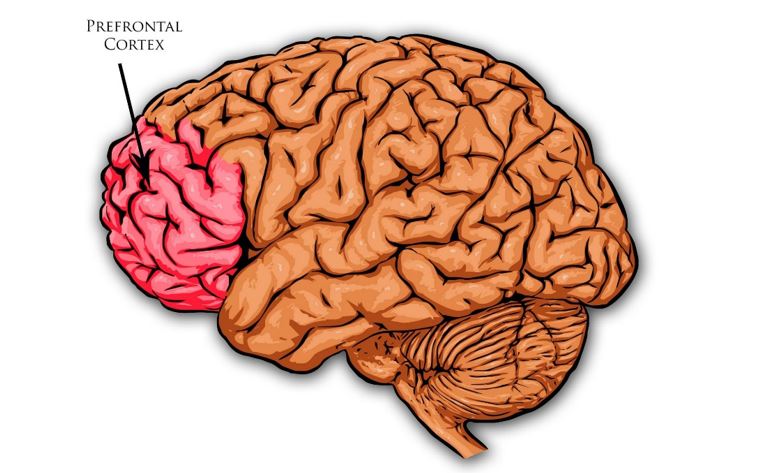
But knowing there’s a good reason that we feel this way doesn’t make the feelings of guilt go away. So I sat down with Lydia Woodyatt to talk about how we can foster some self-compassion, recognise why we might feel guilt or shame, and what we can do to mitigate those feelings and get ourselves back together.
Then, I had a chat with Amy T Matthews, a super prolific author and senior lecturer in creative writing, to find out how her productivity has been impacted by the crisis and what tips she has for getting back on the horse!
Lydia Woodyatt
Why do we feel guilt and shame?
So when we think about guilt or shame as emotions, I think it’s really useful to remember that, as emotions, they’re a gauge of something. When I say gauge, I want you to think of a fuel-gauge in a car. A fuel-gauge is not really anything, it’s just an indicator of something that’s happening inside the tank. The real issue – the thing that runs the car – is the fuel, and the gauge is just monitoring that. It’s the same with our emotions: our emotions are a gauge for something else that’s going on with us psychologically.
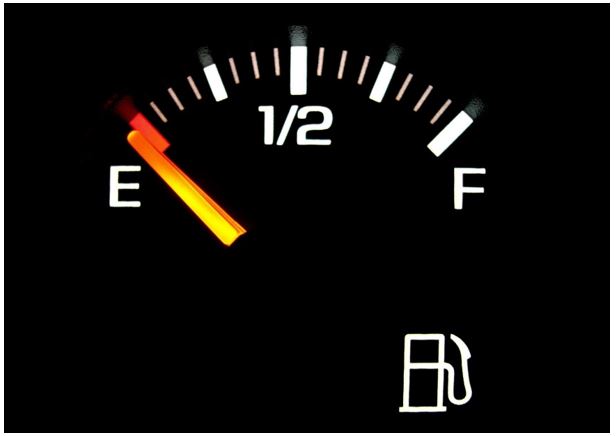
When it comes to guilt and shame, these are emotions that are really wired into humans being in animals that live in social groups. They help us to monitor and moderate social group life – to help us know that we’re fitting in, that we’re being part of a group, that we’re being good and appropriate to our group. So, when we feel shame and guilt, it’s usually related to either feeling that somehow we’re not living up to one of those social group membership expectations and norms. Or, it can be related to when we’re not living up to our responsibilities, especially those to care for other people.
So if we’re thinking about something like not writing or not meeting our performance expectations for ourselves, we have these standards that we’re putting on ourselves, or sometimes that other people are putting on us, and then when we’re not meeting those standards, that’s when we start to feel guilty.
When we experience these emotions it’s worthwhile to stop and go, wait, why am I experiencing this? What’s going on in my tank? We can even name the emotion: right now, I’m feeling really guilty. Then we can use those emotions in a positive way rather than just being wiped out by them.
What do we do to cope with it?
The first thing is to think, is this something that I’m doing, or is this something that someone else is making me feel? Because it’s related to groups, other people’s expectations of us can put stuff onto us that makes us feel guilt and shame. But really, if we stop and think about it, it might not be our issue.
So, a good question to ask yourself when you’re feeling guilty is, what value do I think I might be violating? A value is a way of being that is important to you, or a goal or standard that you really care about: being responsible, being hard-working, having compassion, these are all examples of values.
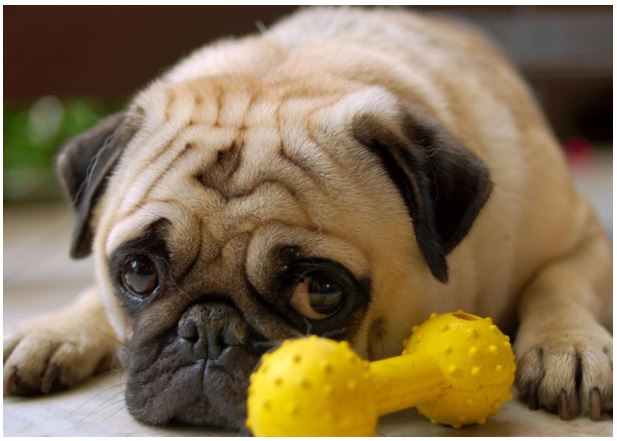
Do you value being a good boy?
Check in with your values
When you feel guilt or shame, you can start by thinking to yourself, okay, what of my own values am I violating in this situation, what is inconsistent with my values? Write it down. Then you can think about what have I done in this context before that are consistent with my values? What kind of behaviours have I done in the past that live out these values? Then think to the future. What am I going to do in the next day, in the next two days, or week that are consistent with those values?
When we do that, we address that tank issue – that need to be a good group member – and by doing that, by actually making a plan that’s centred on our values, we reduce those feelings of guilt and shame and then we find it easier to get on with some of our work.
Treat yourself with compassion
The other issue is that when we actually work through, did I actually violate a value in this situation, I think it’s really important to then go, okay, once I’ve got my plan in place, I need to treat myself with self-compassion. If there’s one rule for university, it’s show up, don’t beat yourself up. Treat yourself the way you would treat a friend. I think a good analogy is if you were on a sporting team and you had a coach who constantly berated you and said you were doing a bad job and ran you down for your poor performance, how long would you want to keep participating in that sport? Not very long right?
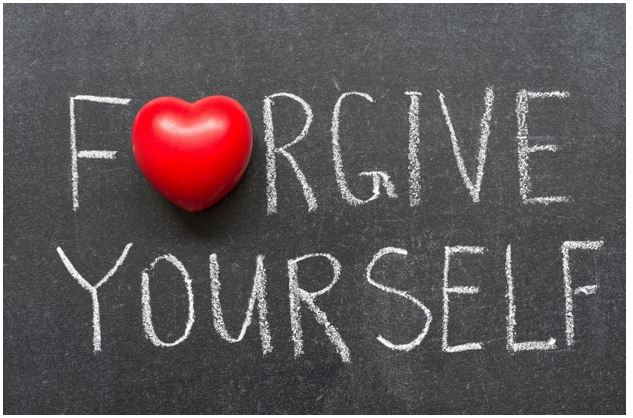
Be a good coach to yourself
When we beat ourselves up, we’re being that bad coach, and then we wonder why we keep avoiding the situation and we don’t want to go to uni and we don’t want to get started on our job. Treating yourself like that creates these avoidance patterns. Instead, you need to call yourself on it. Am I being a good coach to myself? If not, how can I be kind to myself? What would a kind friend say? They’d say, look you had a go, try again tomorrow, put it in the big picture. Sometimes we can write ourselves a letter from the perspective of someone who really cares about us and work it through and think, what would be good advice in this situation?

Remember to rest
Some people feel guilt because they feel they’re not doing enough, but actually the reason they’re not doing enough is because they have physical limitations, and so you constantly feel like you’re not doing enough. But part of our professional development is learning that we each have different boundaries and capacities and we need to learn different rhythms of work and rest. You don’t have to be working all the time. You have to rest first in order to work. You can only ever work out of rest!

If you didn’t get all your jobs done on your list today, like the rest of us, there’s a couple of things you can do:
Normalise
Everyday, there’s so many of us who don’t get through our whole to-do list. But actually, every day is a new day. Just keep tackling things one thing at a time, chunk things down into small parts and keep working on them, they all add up over a long period of time to what you’re actually aiming for.
Check yourself
The other thing is check yourself. Check your emotions. Your emotions aren’t facts about your ability, they’re just feelings that are responding to the situation that you’re in. Sure, when we fail, we’re going to have feelings and that’s fine. Name them and come up with a problem-focused plan to change it for next time.
Give yourself a break
Stop thinking about it, go have a rest. Go do something fun, get some balance and perspective by doing other things that are important to you and then come back the next day.
If these things go on for more than two weeks, I’d say it’s time to reach out to Health, Counselling and Disability and have a chat to a psychologist. Chronic guilt and shame can be associated with other conditions: anxiety, depression, when you’ve gone through trauma. There’s treatment available for that and people who can help you. Part of our professional development is to seek that help and get on top of that experience.
Dr Amy Matthews
How has your creativity or productivity been disrupted at the moment?
Oh my God, it’s been horrible. It’s been so bad. It’s a perfect question to ask because it’s been so bad. I had study leave when we went into lockdown. We’re also renovating our house, we moved into a very small flat, so all my stuff is in storage except for my research. Then the kids were home 24 hours a day, and my partner teaches at Adelaide university so he was home teaching. So I was sitting at the dining table surrounded by people doing online learning and teaching and it was chaos. And I have two books due! So it was chaos. I’m panicking.
Has there been anything in particular that you’ve struggled with most?
I think focus has been the hardest thing. I’ve found that I’m really scatty, I’m very distractible. I’ll think about something then I’ll go off down rabbit holes on the internet instead of doing what I’m supposed to be doing. I get anxious – I don’t know if everyone else is feeling this – but I have to get up and start pacing, or I’m making endless cups of coffee and tea. I’ll write three paragraphs then get up and make a cup of tea.
Have you felt a lot of guilt or shame for not feeling productive?
Yes! Especially at a university. Students will feel the same thing – the deadlines stay there. They still expect you to hand in the same things. For us, the university still expects u s to research and teach and be productive, so I feel really guilty that I can’t seem to focus. I feel like I’m failing all the time.
What’s helped?
It feels counter-intuitive but accepting that it’s going to feel unpleasant, that I’m not necessarily going to get to that place where I feel calm and everything feels into place. I’m going to have to just write while I feel anxious and unsettled and it just doesn’t feel fun! It doesn’t feel like it normally does.
Dividing it up into bite-sized chunks, not thinking about doing the entire thing at once. Like, I’m just going to write a paragraph then I’ll get a cup of tea, then I’ll write another paragraph.
Another thing is messaging people. It seems like my phone and my laptop have become my social site as well. It’s a horrible distraction, but it’s also a weird emotional vent. When the anxiety is building up, I can message a friend and go, ‘Oh my God, this is horrible’, and I can let off some steam and get back to work.
And they’re just feelings! They’re just feelings that we can manage, and we can get through it together.
That’s it for this episode. In the blog, I’ve linked to some resources that I hope you’ll find useful if you want to delve into this topic some more. And, to reiterate what Lydia said, if these feelings are ongoing or are impacting you in ways that you can’t get a handle on, go and see Health and Counselling to help you get on top of things! Next week, we’re going to talk about some motivation hacks.
Resources:
Stillman, Jessica (2020, July 10). Neuroscientist: Covid Brain Is Real. Here’s How to Deal With It. Inc. Retrieved from https://www.inc.com/jessica-stillman/neuroscientist-covid-brain-is-a-real-thing-heres-how-to-deal-with-it.html
Fitzgerald, Sunny (2020, April 7). Don’t feel like ‘getting things done’? It’s okay not to be productive during a pandemic. The Washington Post. Retrieved from https://www.washingtonpost.com/lifestyle/wellness/productivity-coronavirus-pandemic-projects/2020/04/06/742edf54-76e4-11ea-85cb-8670579b863d_story.html
DrJud (2020, April 12). Why fear is infectious & A Brain Hack to Break the Coronavirus Anxiety Cycle (or any worry habit) [YouTube] Retrieved from https://www.youtube.com/watch?v=63O8kJBHK1s&feature=youtu.be
World Health Organisation (2020). Doing what matters in times of stress. Retrieved from https://www.who.int/publications/i/item/9789240003927

